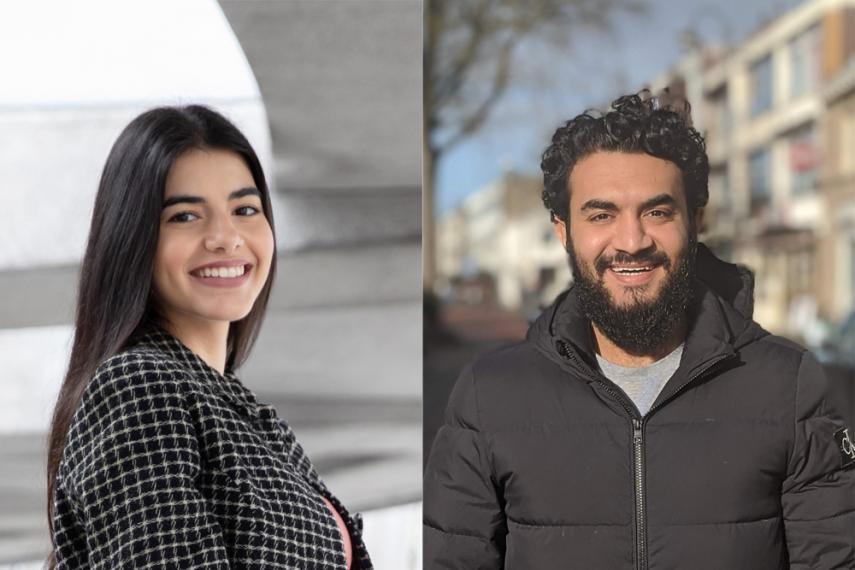U of G VSAI Winners

Two CEPS master’s students have received a Vector Scholarship in Artificial Intelligence.
These prestigious awards are provided by the Vector Institute for Artificial Intelligence (the “Vector Institute”)—a Toronto-based organization that is dedicated to advancing research into Artificial Intelligence (AI) in Canada. At the University of Guelph (U of G), students enrolled in the Collaborative Specialization in Artificial Intelligence (CSAI) program are eligible for the scholarship.
The entrance scholarships are designed to attract top-tier students into Ontario-based AI graduate programs, with the ultimate goal of helping to build a highly skilled AI workforce. The awards are worth $17,500 each, and the winners will have early access to networking and internship opportunities with the Vector Institute’s industry partners.
Winners can span multidisciplinary areas of study, including engineering, computer science, and management. We are proud to announce that Sara El-Shawa and Mahmoud Salem from the University of Guelph were among the 2020-21 VSAI winners. The two U of G students will conduct AI-related master’s research under the direction of their faculty supervisor, engineering professor Graham Taylor.
Sara El Shawa has worked on research projects in various fields such as genomics and computational biophysics at the University of Toronto, where she completed her undergraduate degree in computer science and biology. She also interned as a data scientist at Harvard University and as a robotics engineer at the International Research Center for Neurointelligence at the University of Tokyo. Sara plans to collaborate with the Centre for Biodiversity Genomics on the BIOSCAN project to apply data science methods to large-scale image data as well as sequenced DNA for the purposes of species identification and biodiversity monitoring.
“I believe AI has the potential to continuously impact sectors such as healthcare, banking, and transportation,” says Sara. “AI-powered technologies such as computer vision and machine learning will become more relevant over time and continue to improve our lives and the world around us. I am especially looking forward to the use of AI in advancing research. Within the next few years, I see more research teams studying AI through collaborative interdisciplinary research.”
Mahmoud Salem graduated with a bachelor's degree in computer engineering from Cairo University in Egypt. He then joined Advanced Research Lab at Navinfo Europe in the Netherlands to work as a computer vision researcher. Mahmoud will study adversarial robustness in AI under the broader umbrella of robustness to domain shift and work towards more comprehensive learning algorithms. This will address AI security threat in real-world applications and allow safer, more effective AI systems to improve life through everyday use.
“I believe adversarial robustness not only presents a challenge but an opportunity to rethink current modelling and learning practices and move towards a more human-like notion of intelligence and learning,” says Mahmoud. “I see AI becoming an even more integral part of our lives and continue to transform a broad spectrum of industries. I see the community making strides towards encountering the limitations of the methods and theories, leading to more efficient and robust algorithms.”
Congratulations to our VSAI winners! Read the Vector Institute announcement for a complete list of this year’s recipients.